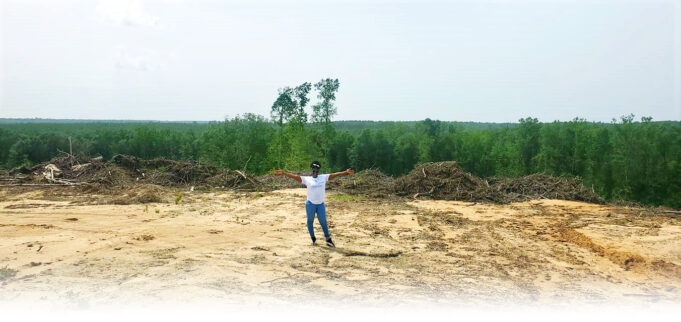The Covid-19 pandemic paired with continued racial injustices are inspiring and forcing Black people towards separation. Many have started building their own communities, while others have engaged in business and entrepreneurship over the course of 2021.
Dr. Ava Muhammad, Student National Spokesperson for the Honorable Minister Louis Farrakhan of the Nation of Islam, said the Covid-19 pandemic and separation are interrelated.
“The pandemic is bringing about the separation. It’s the final step towards separation,” she said, referencing words from Min. Farrakhan on the unraveling of this great nation, America. She explained that the handling of the coronavirus and its vaccines have affected “this snowball rolling down the hill, which is leading us to separation” and that it started with the division of the 50 states.
“Now, there is a growing resistance in the Black community to the overall way that we are being handled, not only the vaccine but the public school system, the continuing rise in police killings, deprivation; all of these things have increased during the course of this pandemic,” said Student Min. Ava Muhammad, an attorney and author.
Countless Black people are looking toward the southern states as places to buy land and form communities. Student Min. Muhammad described Atlanta and the states Alabama and Mississippi as magnets for the Exodus.
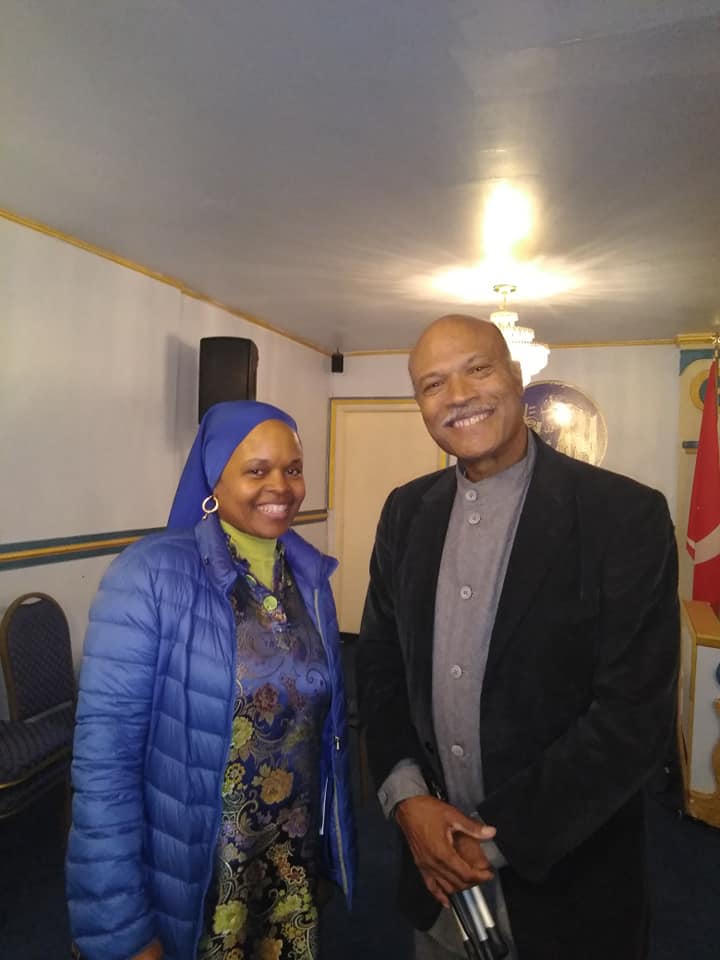
“They’ve become magnets for what is occurring right now, which some people call a reverse Exodus, where every year large numbers of Black people are leaving the North and going back down to the South,” she said.
Some of this earth to call our own
Fueled by the killings of Black people by White police officers and vigilantes and armed with the desire to create a safe haven for Black people, in late 2020, 19 Black families united and purchased over 96 acres of land in Central Georgia. They now have 502 acres of land: a 96-acre parcel and a 404-acre parcel.
Under the name Freedom Georgia Initiative and with the leadership and vision of Ashley Scott and Renee Walters, they steadily progressed throughout 2021. They added RVs to the land, electricity, a well and showers.
Across the course of 2021, they partnered with the Black-owned Swanson Family Farm, the Greater Georgia Black Chamber of Commerce, the National Black Food and Justice Alliance and the NAACP. They also trained others in land stewardship, building with the earth and plant and soil science. The initiative also built a relationship with the county, which will allow them to receive revenue bonds.
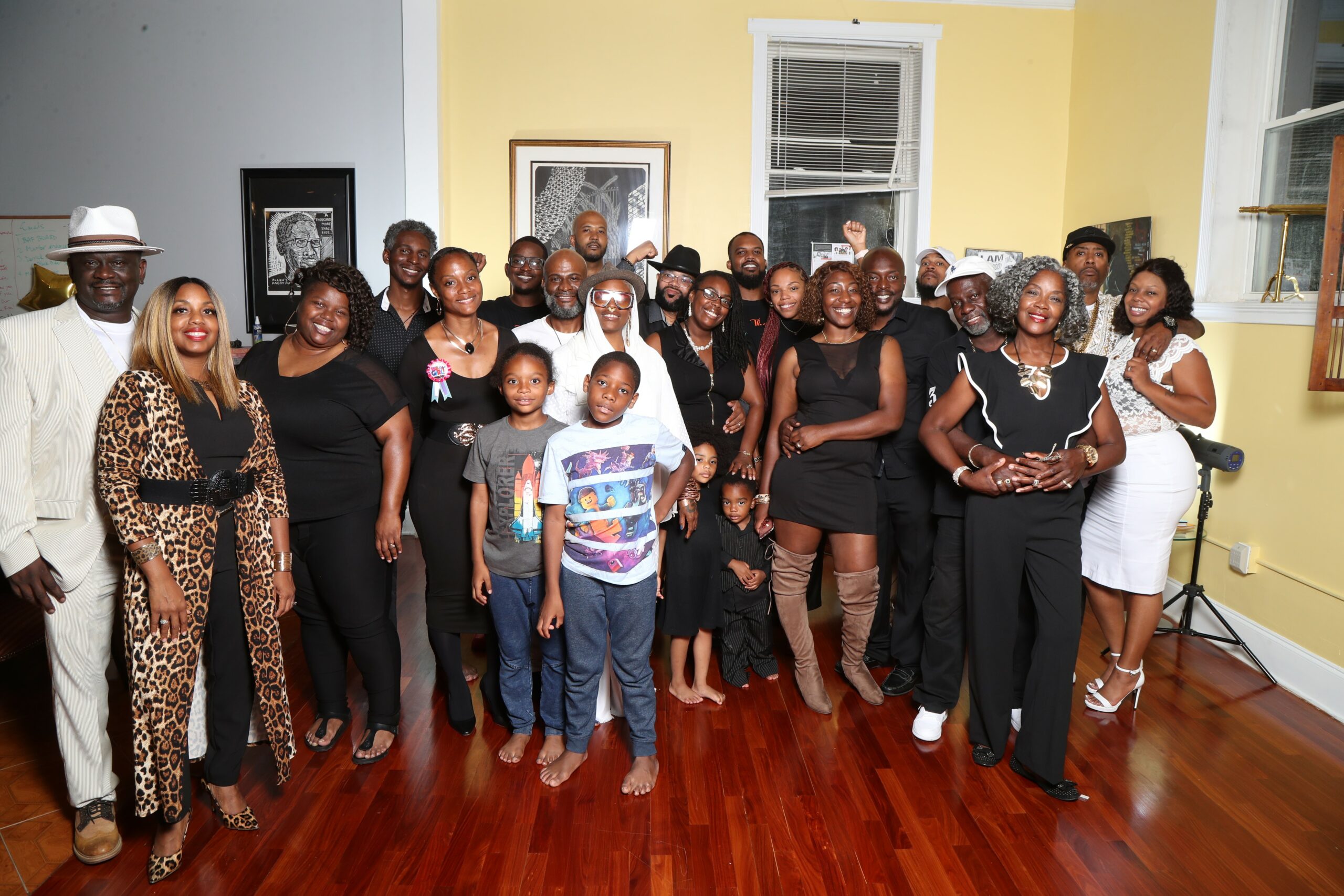
Ms. Scott said they want to set an example for how Black people can create their own infrastructure. Plans for 2022 include raising cows and sheep to offer halal meat, as food sovereignty is a big part of their project, Ms. Scott expressed.
The Black Achievement Fund, a nonprofit that aims to recycle Black wealth into Black communities, purchased 12 acres of land from Freedom Georgia, which organizers will use to build a community-owned retreat center called Little Kemet.
Ms. Scott said Black people can’t expect “our oppressor to create communities that we deserve and desire” and that Black people must create a model to replicate and pass down. “We have the right to create and determine for ourselves the kinds of communities that we each want to live in, and we can’t ever expect, and we should never accept the kinds of communities that people relegate us to,” she said.
Min. Farrakhan has encouraged Black people to own land. Brothers and sisters in the Nation of Islam have been buying land and farming. Eric Muhammad with Muhammad’s Ranch Farms, a nonprofit farming co-op made up of the Original family (Black and Indigenous people), have been buying up land in the Central Georgia area.
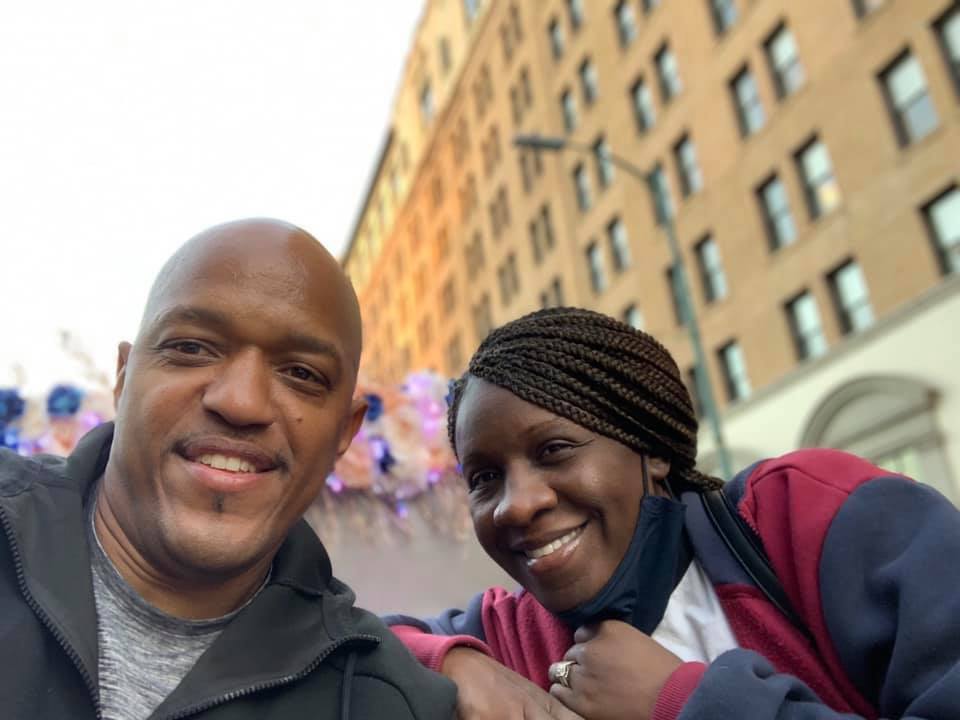
Michael J.H. Muhammad and his wife Anecqua Muhammad own a total of 73 combined acres of land. They have been working and building Muhammad’s Study Group Lehigh Valley (MSGLV) Farms and Cornerstone Estates.
“It’s meant to be a place for the believers to come and enjoy themselves, learn and to be around each other in a place that is reflective of our own doctrine,” Michael Muhammad said.
They have transition homes for those interested in going from renting to owning and have been selling one-acre lots to the elderly. Michael Muhammad said they have also been in talks about establishing a Nation-of-Islam-based museum on the property.
Anecqua Muhammad described 2021 as an inspirational and humbling year. She cultivated the soil and mothered chickens, and said it was important to understand there’s a learning curve. “I have gained, for myself personally, with the help of Allah (God), so much knowledge that I would have never attained in any other atmosphere than being in this setting,” she said.
Melody Muhammad, founder of Edith Family Farms located in North Carolina, spent the summer of 2021 educating children on agricultural, horticultural and survival skills. Married couple Ghazi and Cheyenne Muhammad purchased 25 acres of land in Villa Rica, Ga., which they turned into Kayeneh’s Sunset Ranch.
With a program called “The War On Murder Begins” (WOMB) founded by Scott Muhammad and his wife Erica Muhammad, Black people in Tuskegee, Ala., have been honoring the slain through agriculture and the installation of an edible park called the Atonement Memorial Garden.
Others have been tackling Black food insecurity and food apartheid. Starting in 2022, The Well at Oxon Run, located in Washington, D.C., plans to grow 150 varieties of produce, herbs and edible flowers. The Detroit Black Community Food Security Network is planning to build a 34,000 sq. ft. “Detroit Food Commons” that will include a cooperatively owned grocery store and shared-use kitchens.
Muhammad Farms, managed by Dr. Ridgely Mu’min Muhammad, the Nation of Islam’s student minister of agriculture, has been producing twice as much produce as they did in 2019 before the pandemic.
“Covid-19 scared our people to death. That woke them up. … And now they know they’re going to have to do for themselves and take care of themselves, because being integrated with White folks, there’s no guarantee,” Dr. Ridgely Muhammad said.
He said weeds, deer and other wild animals have been destructive this past year and that they developed a plan to deal with the weeds and animals. They planted 200 acres of wheat which will be harvested in 2022.
The Muhammad Farms offers staple goods such as flour, navy beans, rice, sugar, lentils and honey. They started in 2011 and celebrated the 10th anniversary of the Staple Goods Project in 2021. The products travel to 84 cities across the country.
Dr. Ridgely Muhammad urged Black people to unite and buy land collectively. “We have to have communities of farmers, not just one farmer here, one farmer there. Because you can’t do this by yourself. You need to be able to have a community of farmers on a large, large acreage of land and do it collectively like the Amish, and then you have something going,” he said.
The science of business
The New Black Wall Street Market, a Black-owned mall in Stonecrest, Ga., is selling Muhammad Farms products in their grocery store. The market held a hard launch on Black Friday 2021 and houses over 100 Black-and-women-owned businesses.
Entrepreneur, author and financial scholar Dr. Boyce Watkins said Black people had more unity in 2021 and have been more aware of the importance of Black wealth. He foresees the stock market experiencing tough times in 2022 but said the trends of supporting and growing Black businesses will continue.
“We should continue to love each other. Continue to know the importance of what we teach our children. Continue to focus on building for the future,” he said.
Some of his biggest initiatives include an office in Jay Morrison’s BlackHouse in Atlanta, the Tulsa Real Estate Fund and a book that will be released by March 1 titled “10 Commandments of Black Economic Power.”
Dr. Watkins hosted the 6th annual All Black National Convention in late October. He said Black love and Black excellence together created Black magic. He’s been in talks about developing a national network of Black homeschooling parents.
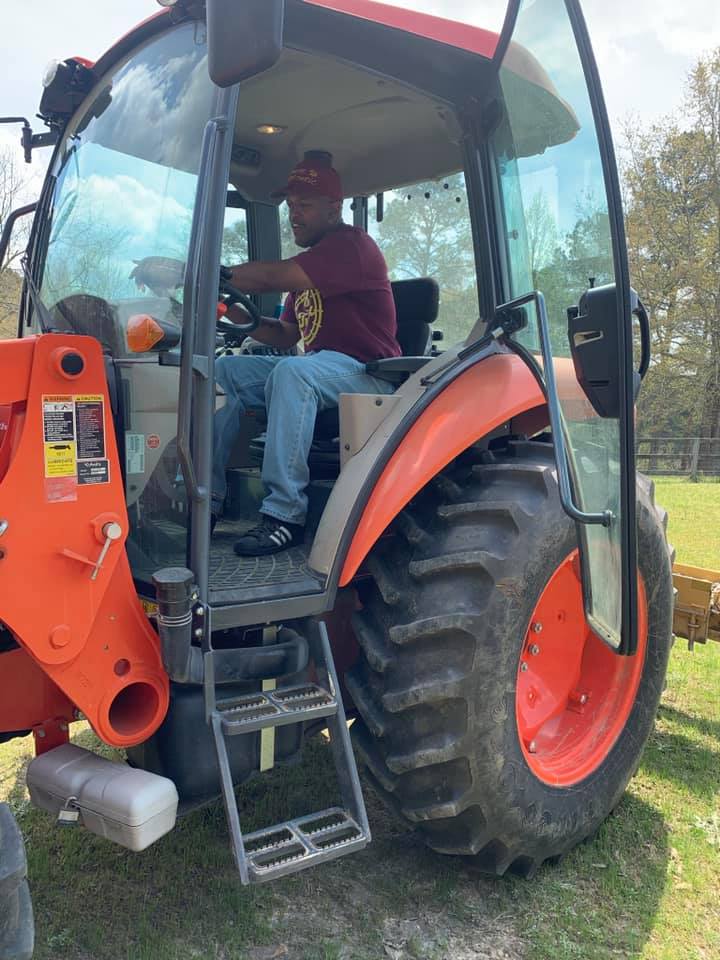
Cassiopeia Uhuru, co-founder of TheBlackMall.com based in Chicago, said she’s seen a rise in new Black businesses across 2021. She and Dr. Watkins both cited lack of access to capital as a challenge Black-owned businesses still face.
The Black Mall celebrated 10 years in 2021, and Ms. Uhuru said they changed their tagline from “making it easy to buy Black” to “making Black-owned brands household names.”
“With the increase of businesses out there, we want to make sure that they last, that they’re sustainable, that they actually make money and profit,” she said.
Also in Chicago, the Salaam Community Wellness Center opened its doors. Founders Dr. Constance Shabazz and Abdul Akbar (Kurt) Muhammad said they started the center to address the pandemic as well as the disparities related to poor education, housing and food deserts.
“We’re also looking at it as an approach for us to be able to build a real community,” Akbar Muhammad said. They are working on an ‘Eat to Live’ restaurant and are also putting together a fund in order to give loans to would-be entrepreneurs. They own a laundry facility on the same block as the wellness center, and acquired a vacant lot that will be turned into an urban farm.
“I think what we’re doing now is we’re pushing these colonizers out of our community. And that’s what I think we need to do,” Akbar Muhammad said. “Instead of complaining about what colonizers are doing to us and coming into our community and taking revenue out and not allowing it to circulate and doing for us, I think that we need to be able to take certain industries, learn about these particular industries, and we can begin to monopolize those industries.”
Sajdah Wendy Muhammad, a business developer, has spent 2021 restoring the former home of the Most Honorable Elijah Muhammad, now called the Sajdah House. She acquired the home three years ago.
“Most recently, we were added to the national historic registry, and the idea is to make it a house museum where people can come, and through place-based education, learn more about the Most Honorable Elijah Muhammad, gain access to information and really just feel his spirit and get to know him,” she said.
She and her team made commemorative Elijah coins from the copper gutters of the home. Also in 2021, they defeated an ordinance that threatened the existence of house museums in Chicago. On a smaller scale, they plan to do both virtual and in-person tours in 2022.
In Atlanta, Southern Regional Student Minister Abdul Sharrieff Muhammad opened “The Ark,” which houses a grocery store, bookstore, clothing boutique, fish program, bean pie program, auditing room and offices for Rise Magazine and Supreme Spring Water. The building hosted its first wedding in late 2021.
Through the nonprofit People United For Change, Min. Sharrieff Muhammad and his team feed people every day. He has also been spearheading the 10,000 Fearless—at the direction of Min. Farrakhan—with the aim to make Black communities safe and decent places to live. Conflict resolution centers are being set up all over the country. In Atlanta, the 10,000 Fearless have a patrol car and offer a sailboat class.
The 10,000 Fearless in Chattanooga, Tenn., has purchased four acres of land with the goal to form a community haven. Christina Muhammad, coordinator for the 10,000 Fearless First Responders out of Austin, Texas, her husband and others are building a 10,000 Fearless Community Ranch which will include residential homes, a school, a medical facility, a gas station, a hotel and other amenities.
Project Separation
Under “Project Separation,” Student Min. Ava Muhammad and her team initiated an online program titled “Building Our Own Promised Land,” where they showcase members of the Nation of Islam and Black people who are actively engaged in land acquisition.
“What we’re finding is that Black people are becoming more and more determined to have their own, and this is a direct result of the teachings of the Honorable Elijah Muhammad, the work of Minister Farrakhan and the time itself. We are living in the fullness of time,” she said.
Student Min. Muhammad described 2021 as a long and trying year, as many Black people have been threatened with the loss of jobs and livelihood if they do not take the Covid-19 vaccine. But she said in 2022, she believes there will be a faster and stronger effort to “come out of” America and that the 2021 film “King Richard,” which was produced by and stars Will Smith, is “a real-life example of the change that is taking place in our people.” The film is the story of Mr. Williams, father of tennis stars Venus and Serena Williams.
Before the Covid-19 pandemic, Student Min. Ava Muhammad hosted separation town halls across the country and gathered a pool of data. She said the plan is to get back in touch with the people who attended “because we’re past the teaching phase now, and we’re into the doing phase,” which includes unity and land acquisition.
“That’s the last phase of sovereignty, because we have a God, we have a flag, we have a constitution and we have a way of life,” she said. “The only thing now is to continue to broaden our land acquisition so that we can live that way of life without intrusion.”












